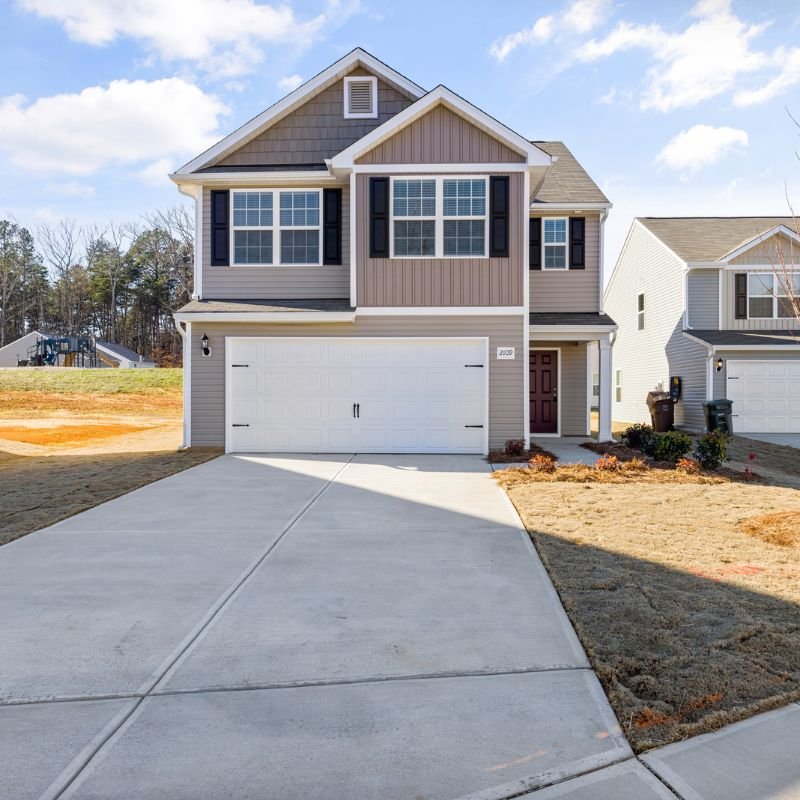
Want To Start Building Your Dream Home?
Is Flipping Houses Profitable?

Flipping houses has long been seen as a quick way to make substantial profits, but it’s not always as straightforward as it seems.
For those considering getting into the business, the primary question is – Is flipping houses profitable?
While the profit potential exists, several factors determine if flipping a property ends in a windfall or financial frustration.
Here’s what you need to know about turning a profit, avoiding common pitfalls, and making smart decisions before tackling your next flip.
What Does Flipping Houses Entail?
Flipping houses generally involves purchasing a property at a low price, making renovations, and then selling it at a higher price to earn a profit.
The idea is to buy low, add value through renovations, and sell high.
It sounds simple, but like any investment, it carries risks and challenges that can significantly impact your bottom line.
Is flipping houses profitable for everyone? Not necessarily.
Success hinges on timing, costs, and market conditions, all of which can vary widely from one project to the next.
The Factors That Influence Profitability
- Property Acquisition Costs
The price you pay for a property is a crucial factor. The lower your initial cost, the higher the potential for profit. However, securing a property at a bargain price can be challenging, especially in a competitive market. - Renovation Expenses
Renovation costs often eat into profits. Miscalculating renovation expenses or underestimating the time required can lead to budget overruns. Hiring skilled contractors, ensuring quality materials, and adhering to local building codes are essential steps that add to overall costs. - Market Conditions
The real estate market plays a huge role in determining if flipping houses is profitable. A seller’s market, where there are more buyers than available properties, can work in your favor. Conversely, in a buyer’s market, flipping may yield lower returns or even result in a loss. - Holding Costs
Many new flippers overlook holding costs, such as mortgage payments, property taxes, insurance, and utilities. If a property doesn’t sell quickly, these expenses can accumulate and diminish profits. - Sales Price
Ultimately, your profit depends on the final sale price. Pricing the property too high might deter potential buyers, while pricing too low could mean losing money. Accurately assessing the property’s market value and potential appreciation is key.

Common Pitfalls in House Flipping
Here are some common pitfalls that can affect if flipping houses is profitable:
- Underestimating Costs and Time
Many first-time flippers fall into the trap of underestimating renovation costs or the time required to complete them. This miscalculation can turn a promising project into a costly endeavor. - Lack of Market Knowledge
Entering the market without a solid knowledge of local real estate trends can lead to buying properties in declining neighborhoods or overpaying for a property. - Poor Project Management
If the renovation project is not managed properly, costs can spiral out of control. Hiring the wrong contractors or experiencing delays in securing permits can slow progress and increase costs. - Ignoring Local Building Codes
Ignoring or being unaware of local building codes can result in fines or the need for costly rework. This is especially true if the renovation involves major structural changes.
Strategies to Make Flipping Houses Profitable
If you’re serious about making flipping houses profitable, consider these strategies
1. Set a Strict Budget and Stick to It
Define a budget before you begin and make sure to include a contingency for unexpected expenses. Resist the urge to overspend, even on upgrades that seem necessary.
2. Choose the Right Property
Not every property is worth flipping. Look for homes in desirable neighborhoods with strong market growth. Check for properties that require only cosmetic fixes rather than extensive structural work.
3. Work with Reliable Contractors
Skilled contractors can make or break a project. Choose contractors who have a solid track record and experience with similar projects. Clear communication and reliable timelines are essential to prevent unnecessary delays.
4. Have a Solid Exit Strategy
Know your exit strategy before you even start the project. Will you sell the property immediately, or is renting it an option if the market slows down? A well-thought-out exit strategy can save you from potential losses.
Weighing the Pros and Cons
So, is flipping houses profitable? It can be, but it’s not guaranteed.
The profitability of house flipping depends on a range of factors, from the initial purchase price to market conditions and renovation costs.
Without thorough research, careful budgeting, and strategic planning, profits can quickly turn into losses.
If you’re looking to increase your chances of success in the flipping business, working with experienced professionals like us at Build New Home Coach can be a game-changer.
With a focus on helping investors navigate the complexities of construction and project management, the whole Build New Home Coach team and I provide valuable insights that help minimize risks and optimize profitability.
I believe that flipping houses can be a rewarding venture if you have the right knowledge and support.
Leveraging Build New Home Coach’s expertise can give you the confidence to tackle your next project, knowing you have a team that understands the intricacies of construction and real estate.


